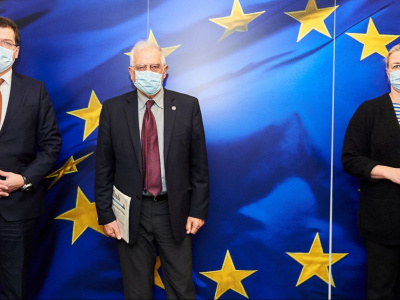
Study on the EU and its member states mobilising public sector expertise for development: Analysis paper
Katja Sergejeff and Mariella Di Ciommo look at the added value of public sector expertise in EU development policy, the factors that motivate EU institutions and member states to use it, and its strategic potential for cooperation with partner countries under the NDICI.
Summary
This paper is the second phase of a study on the use of public sector expertise (PSE) in European development cooperation. Broadly speaking, PSE refers to the exchange of knowledge, expertise and advice between civil servants or other public sector experts in EU member states and third countries to solve shared policy and institutional problems. PSE can use different modalities and tools. Examples of PSE activities include long-term secondments of public officials from member state administrations in the offices of a third country to share policy advice about a certain reform, or short-term seminars to inform third countries about EU legislation and standards in a given area, for example for the purpose of accessing the single market.
The phase one study mapped some of the administrative, legal and operational arrangements for PSE in 20 EU member states and highlighted the challenges for giving it a more strategic role under the new Neighbourhood, Development and International Cooperation Instrument (NDICI) – Global Europe. This second analytical study looks at the added value of European PSE, the factors that motivate EU institutions and member states to use PSE, and the strategic potential of PSE for cooperation with partner countries under the NDICI.
The EU and its member states have developed a great deal of experience in PSE, originally in enlargement and neighbourhood countries and now on a global scale. This paper contributes to the ongoing policy debate on PSE to strengthen the way in which PSE is implemented as part of European development cooperation.
This paper is also available in Spanish via the website of Fundación Internacional y para Iberoamérica de Administración y Políticas Públicas (FIIAPP), which commissioned the paper in the framework of a Practitioners’ Network study on the EU and its member states’ provision of public sector expertise for development.




